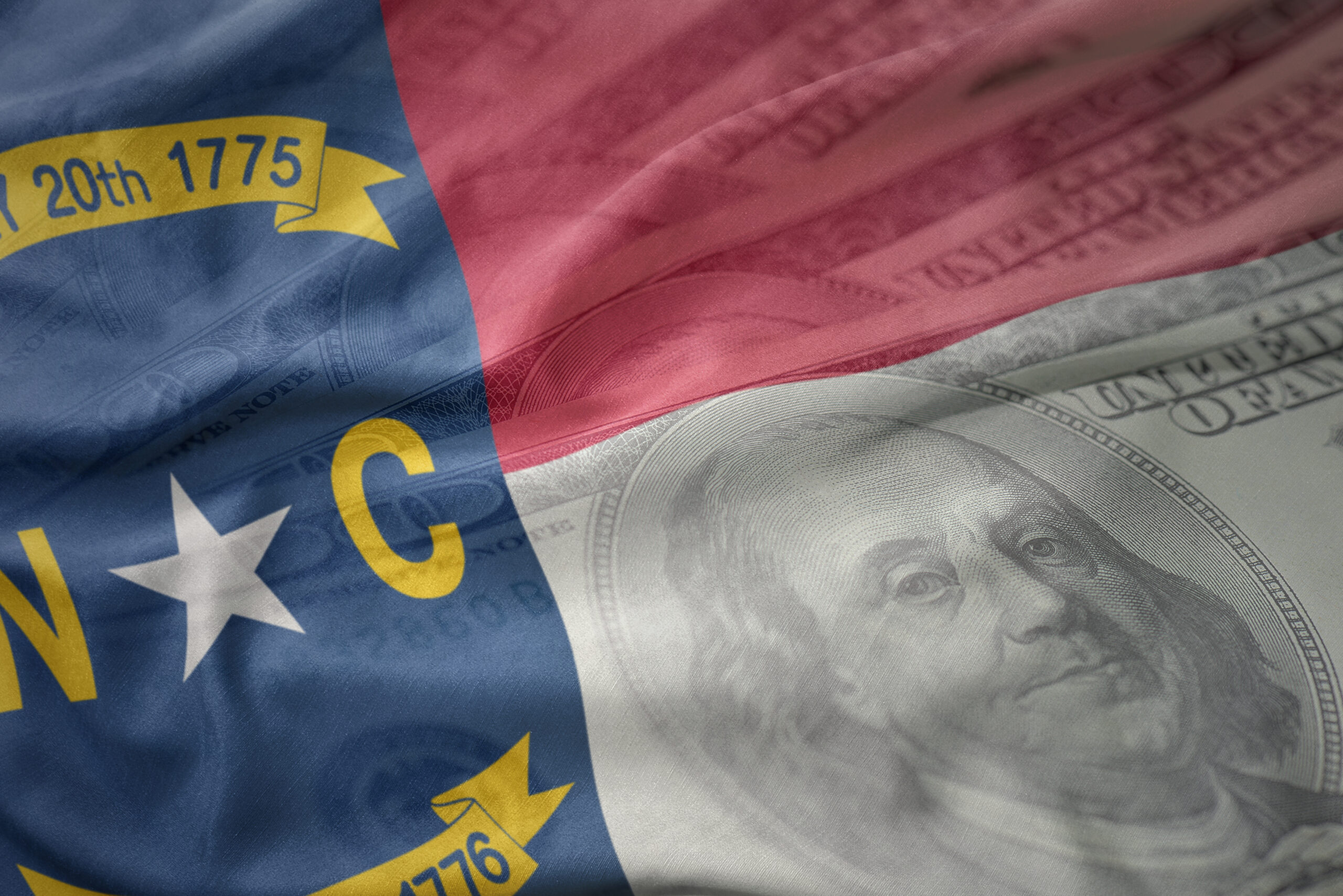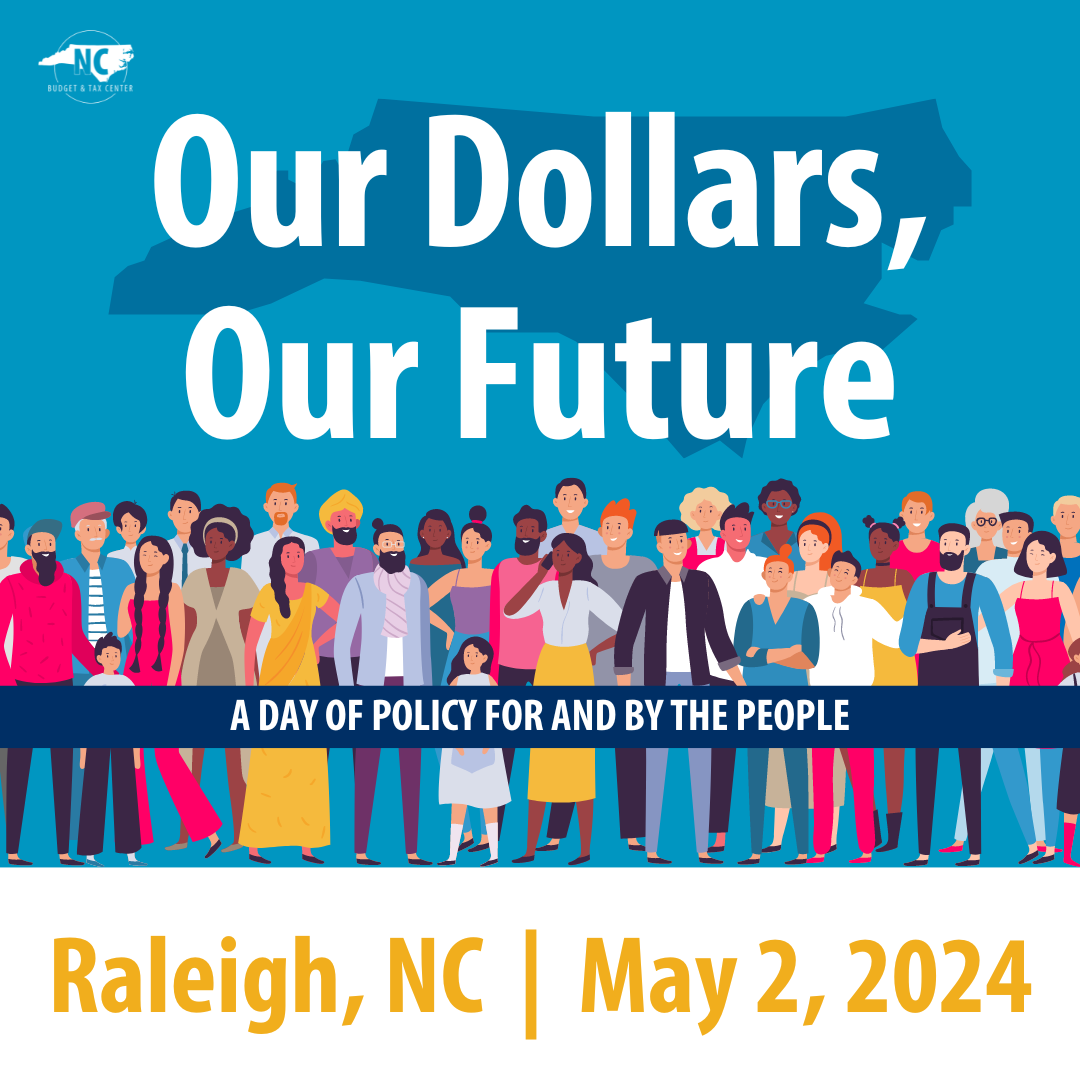
NC’s revenue forecast could be so much better if corporations and the wealthy paid what they owe
The recently released revenue forecast for the current fiscal year provided policymakers with a bit of good news. Again. But only if state lawmakers use public funds to pay for public goods.
Across the country, states are experiencing similar bumps in revenue — so imagine how much more we would have without income tax cuts for wealthy people and corporations. We must demand our leaders use our collective resources to not just keep up but get ahead in North Carolina.
NC has the public dollars to meet pressing priorities for a better future
The state now has more public dollars than was projected in the last revenue forecast to spend on priorities like children’s education, worker training, access to child care and affordable housing for their families, and infrastructure to connect more communities to the internet and more people to good quality jobs nearby.
These dollars come at a critical time. Federal funds will taper off in the coming year after providing a critical boost to communities and people (and contributing to the revenue projections at the state level). Protecting available revenue streams in the face of the potential for an economic downturn is particularly important, as states will still be required to balance their budget and families and communities could be hard hit by job loss and other hardships.
Policymakers should seize the opportunity that this good news represents and pay for the things that would help shore up and bolster the state’s foundation for a better future.
More dollars than we expected doesn’t mean we have more than we need
The revenue forecast each year is put together by economists at OSBM and Fiscal Research and represents a consensus view of what to expect in the years ahead. (This video provides a helpful overview of the revenue forecasting process.)
It also provides insight into what we are seeing today.
Many of the headlines focused on there being more money available this year than was previously projected, but projections in the next two years have been adjusted downwards, demonstrating the impact of the combination of a slowing economy and choosing to reduce income taxes over the next several years for wealthy corporations and people.
The state’s revenue collections as a share of total state personal income — a measure of the size of the economy — demonstrates that current revenue projections continue to fall short of what our state has the capacity to raise for public goods. By 2024-25, the state would have a third less in public dollars than would otherwise be possible if our revenue collections kept up with historic trends.
Cutting income taxes in uncertain times is irresponsible
Record corporate profits are noted as a significant contributor to the projected increase in tax collections; the consensus forecast finds nearly $700 million more will come from corporate and franchise taxes. And yet the corporate income tax is set to be eliminated by 2030, putting at risk a key source of public dollars and making it more likely that future leaders will turn to raising sales taxes and fees on everyone in North Carolina to make up for what is diverted to the wealthy.
The challenge will be that the state’s revenue growth — even with the significant anomaly during the pandemic and federal response — without income taxes is not likely to keep up with the pace of economic growth. Our state’s revenue has not grown as fast in nominal terms in the past decade compared to the pre-Recession period. Since 2013, average nominal revenue growth has been 5.1 percent, compared to revenue growth of 8.6 percent during the decade prior to the Great Recession when the state had a graduated income tax where higher income was taxed at higher rates.
The long-term adequacy of our public dollars is eroded when don’t ask those with high incomes and making profits from our work to pay what they owe through taxes.
Funding public goods with public funds
Instead of driving public dollars toward people’s priorities, legislative leaders set aside billions in various special funds, reserves, and savings accounts, all to hold spending down and justify putting in place tax cuts well into the future.
Scheduling tax cuts over the next decade when revenue projections never extend more than three years is fiscally irresponsible.
Amid the uncertainty on the horizon in our economy and the very real needs in our communities, this year’s revenue forecast should be a call to choose a different path and use public dollars to fund education, child care, housing, and the health and well-being of families and communities across the state.


